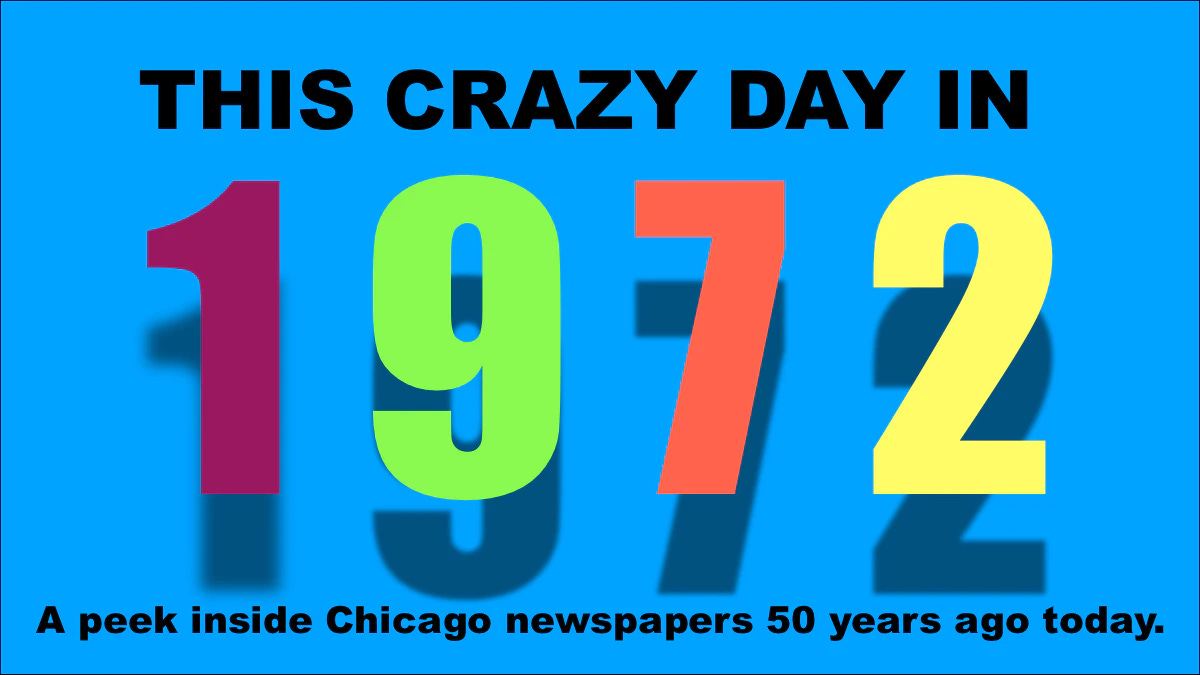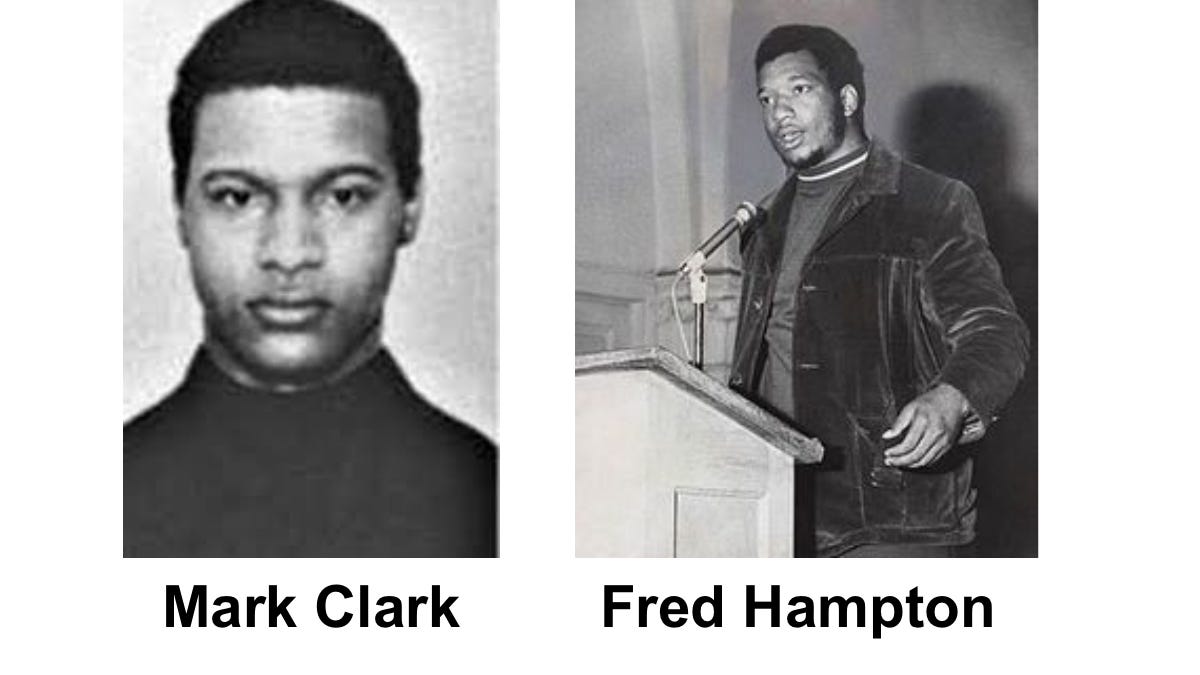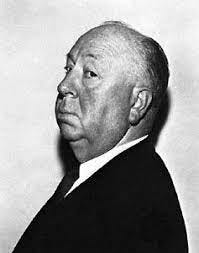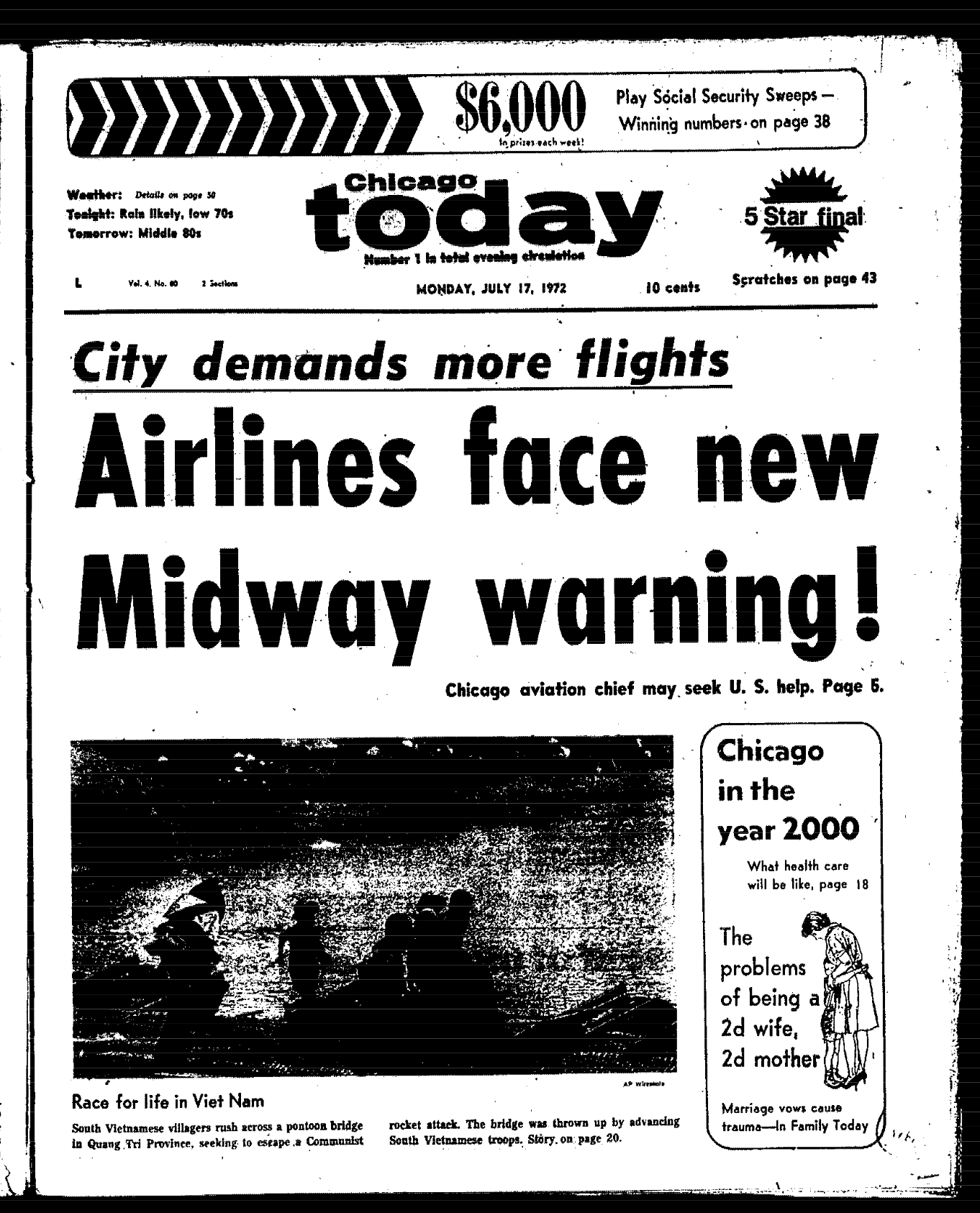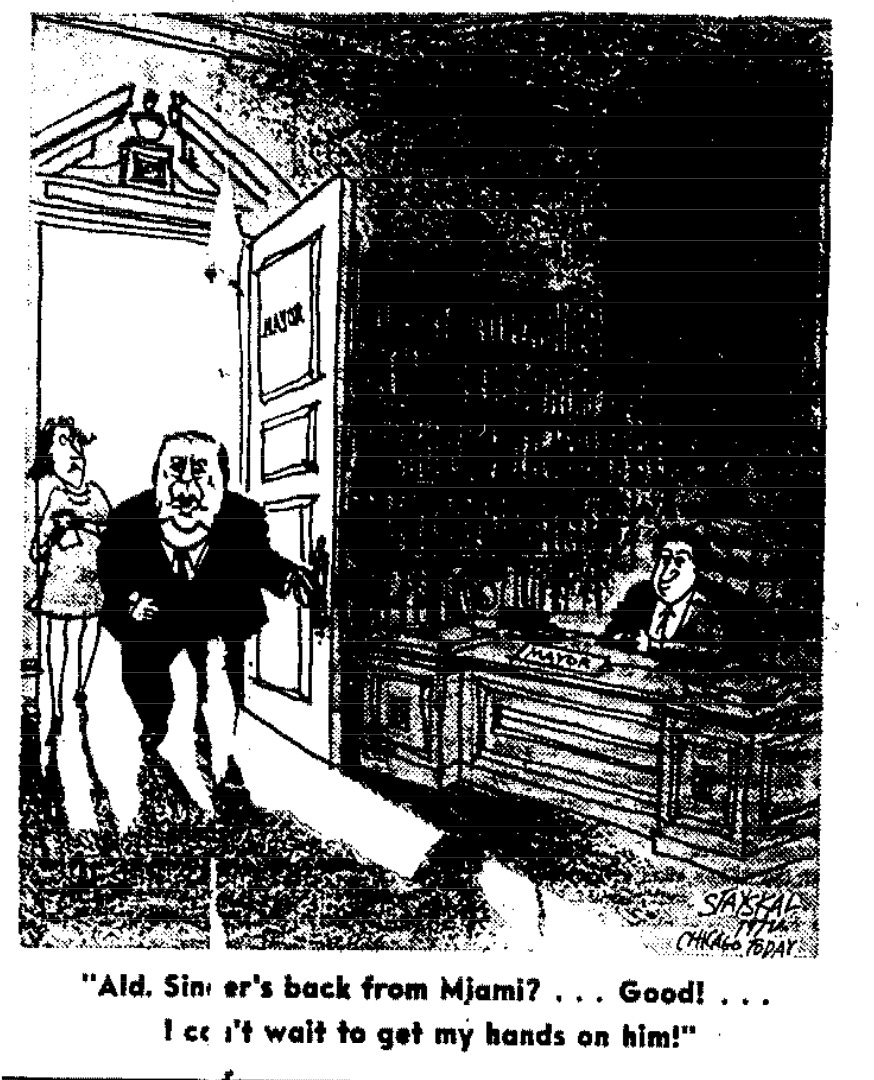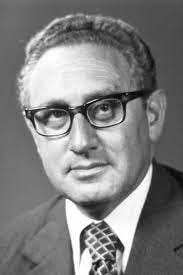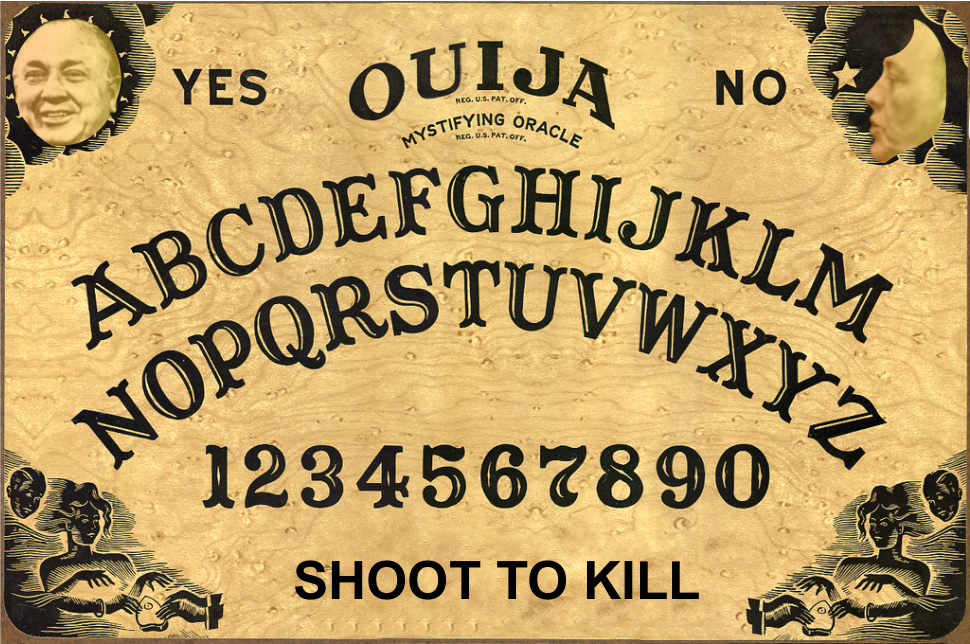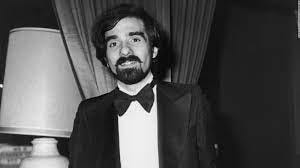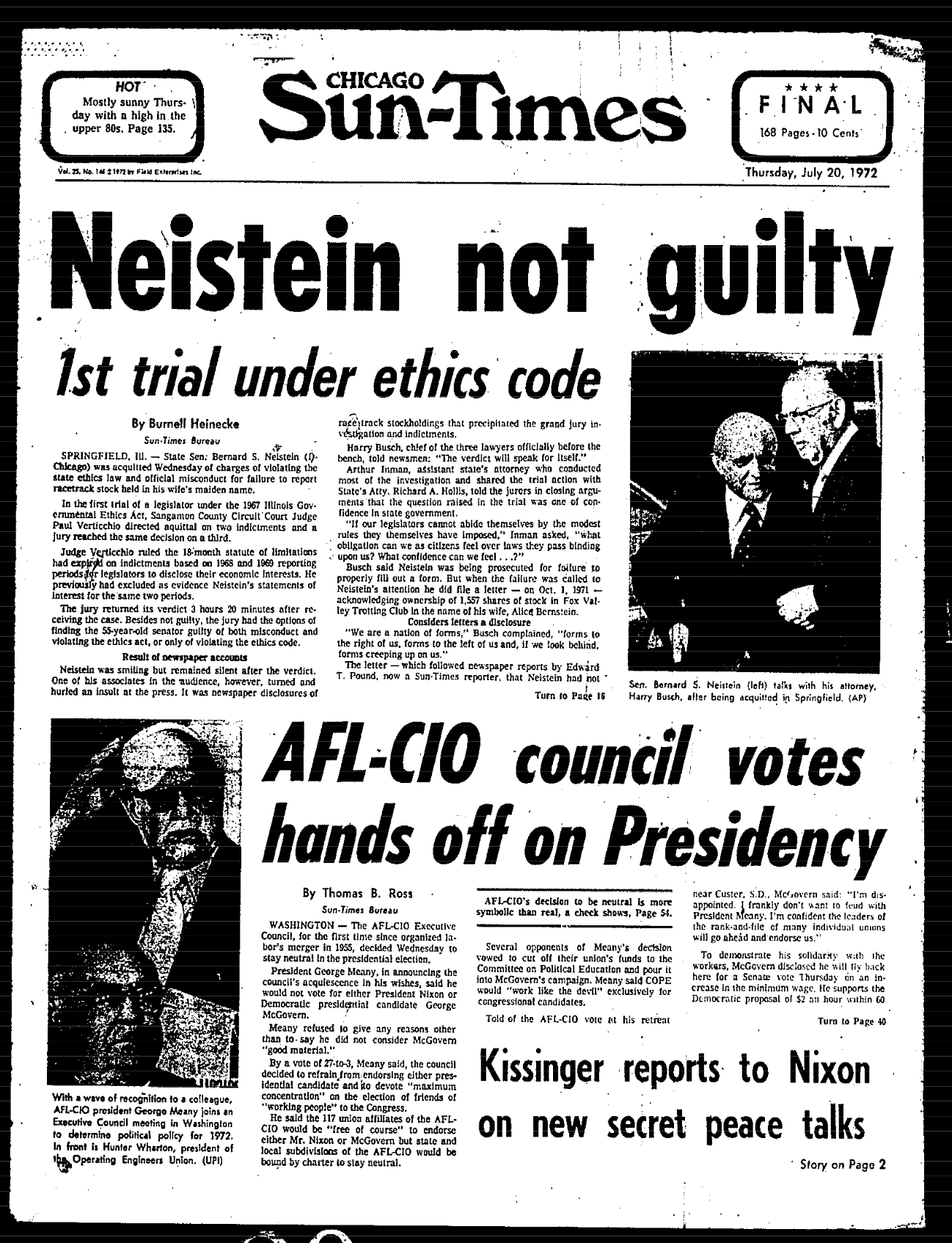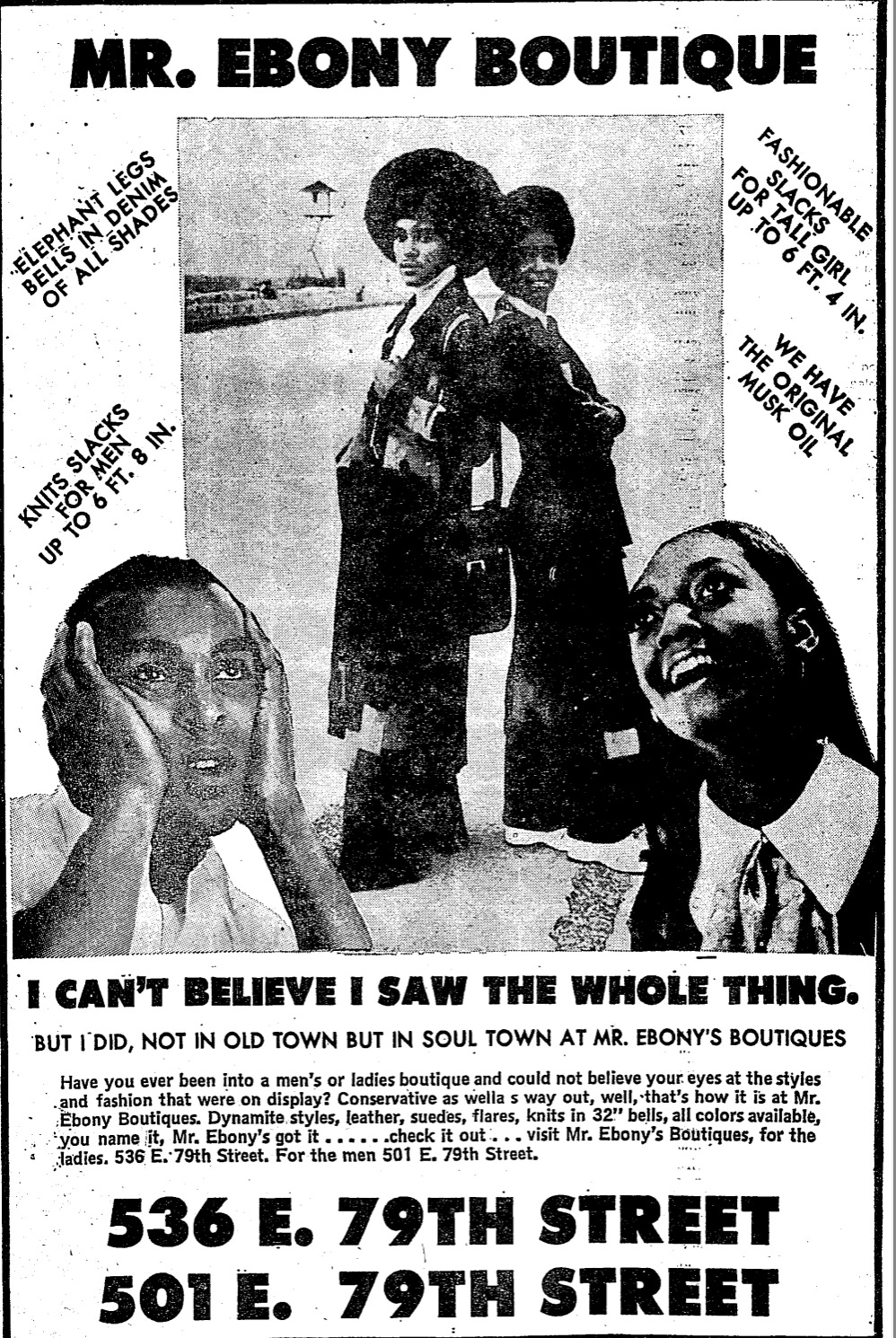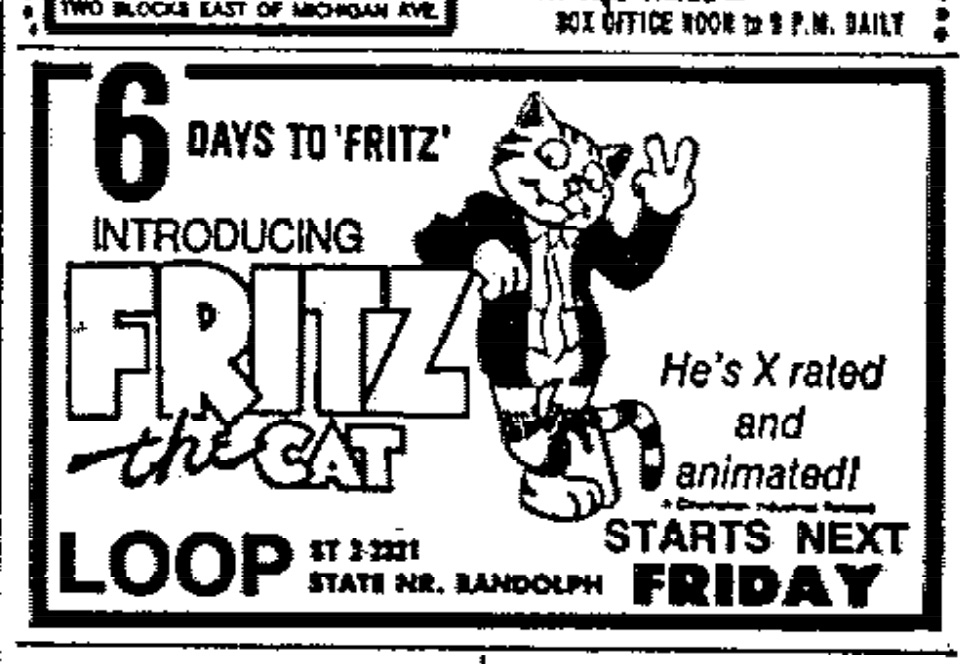THIS CRAZY DAY IN 1972: What's floating in the Sanitary and Ship Canal this week?
JULY 17-23, 1972
To access all website contents, click HERE.
Why do we run this separate item peeking into newspapers from 1972? Because 1972 is part of the ancient times when everybody read a paper. Everybody, everybody, everybody. Even kids. So Steve Bertolucci, the 10-year-old hero of the novel serialized at this Substack, read the paper too—sometimes just to have something to do. These are some of the stories he read. Follow THIS CRAZY DAY on Twitter, @RoselandChi1972.
July 17, 1972
Chicago Daily News
by John Gallagher
It all started when three men followed West Side property manager and landlord Lonnie Branch into his building at 219 N. Central.
According to Lonnie Branch, the three men said: “We’ll kill you and we’ll kill your wife if you don’t give us $50,000. We’ve got someone watching your wife.”
Branch promised to get the money from his safe deposit box at Continental Illinois National Bank, 231 S. La Salle.
One of the men, Charles Brownlow, 25, of 4457 W. Monroe, drove Lonnie Branch downtown. The other two men followed in another car. Brownlow went with Branch into the safe deposit vault while he got the money. On the way out:
“As they passed guard Edward Fritz, Branch suddenly threw his arms around the bearded Brownlow and shouted: ‘Help me! I’m being kidnapped and robbed!’
“During a struggle, Fritz’ gun discharged, ricocheting off a nearby marble counter.
“Other guards helped subdue Brownlow, who had a .38-caliber pistol tucked beneath his shirt, police said.”
The other two robbers got away, but Branch’s wife was safe at their home at 9216 S. Union.
Boy, Continental Bank’s safe deposit vault saw a lot of action. On January 7, it was one of three Chicago banks where a mad bomber set a time bomb in a safe deposit box.
July 17, 1972: Hanramania
Indicted Cook County State’s Attorney Edward Hanrahan is finally defendant Cook County State’s Attorney Edward Hanrahan, as he and 13 co-defendants finally stand trial.
Hanrahan et al are accused of obstructing the investigation into the 1969 pre-dawn raid by State’s Attorney police on a Black Panther apartment, in which Panthers Fred Hampton and Mark Clark were shot to death.
Hanrahan used every delaying tactic possible, but all motions come to an end. Last week, the defendants chose a bench trial with Judge Philip Romiti, who got the hottest case in town tossed into his black-robed lap.
From today’s coverage:
Chicago Sun-Times
by Michael Garrett
The Sun-Times incorrectly anticipates that the trial might open today with Deborah Johnson, 21, one of the seven occupants of the Panther apartment at 2337 W. Madison who survived the raid.
Johnson was eight months pregnant at the time with Fred Hampton’s child. Her testimony is eagerly anticipated, because all the survivors have so far refused to talk or testify officially. But we won’t hear from Johnson until Friday’s papers.
“Displayed in court, but not yet introduced into evidence, are the 19 weapons confiscated from the apartment, said to have been the Panther arsenal.”
“Before the courtroom door is opened each day, all spectators are searched by sheriff’s policemen and policewomen.
“This is a second search, because all visitors to the courts building are searched as they enter.”
Chicago Daily News
by Edmund J. Rooney
Rooney picks up on Judge Philip Romiti’s mood. At one point, Romiti dolefully tells the courtroom, “At this rate we’ll be here until Christmas.”
Today, special prosecutor Barnabas F. Sears “reluctantly” surrendered a box full of newspaper clips from the earlier federal grand jury proceedings, giving it to the defense attorneys.
Sears asked for a receipt.
That’s when Judge Romiti uttered the quote in the headline and testily told everybody to sit down.
July 17, 1972
Chicago Sun-Times
It’s a thumbs up—four stars.
“Alfred Hitchcock’s ‘Frenzy’ is a return to old forms by the master of suspense, whose newer forms have pleased movie critics but not his public,” writs Roger. “This is the kind of thriller Hitchcock was making in the 1940s, filled with macabre details, incongruous humor and the desperation of a man convicted of a crime he didn’t commit.”

The only thing out of the 70s, writes Roger, is the violence and nudity. It’s a long way from the shower scene in “Psycho.”
Involvement is the main sensation, says Roger, since we know the The Necktie Killer’s identity from the start and follow him, so we “cannot help identifying with him. There is a scene, for example, in which he inadvertently gets himself trapped in the back of a potato truck with a sack containing the body of his latest victim. We know he is a slimy bastard, but somehow we’re sweating along with him as he crawls through the potatoes trying to regain a bit of incriminating evidence.”
“It’s delicious to watch Hitchcock using the camera. Not a shot is wasted….and, as always, Hitchcock smacking his lips and rubbing his hands and delighting in his naughtiness.”
July 17, 1972
Chicago Daily News
The Red Flash Late Markets edition:
And the later Red Flash Final Markets edition:
no byline
“A cheering crowd of 300 neighbors and friends greeted Mayor Richard J. Daley as he emerged from his Bridgeport bungalow Monday morning and headed for work,” begins this front page article with no byline.
The crowd, including neighbor and Circuit Court clerk Matthew Danaher, began gathering at 7 a.m. Mayor Daley “emerged” at 7:30. Other accounts imply that Danaher orchestrated the whole thing. While that seems perfectly possible, I also suspect it would have been unnecessary.
Daley had been ‘on vacation’ at his Michigan summer retreat since before the Democratic National Convention opened in Miami Beach last Monday.
And once the convention kicked Mayor Daley and his 58 other delegates out of their seats in favor of the Daley-Singer 59, the vacation just kept going. See just about any day in last week’s TCD1972, “Mighty Daley has struck out” for details.
Homemade posters in this little rally on Lowe included sentiments like“Mayor Daley Is Our Man; He’s The Finest In The Land”.
“‘You’re all wonderful neighbors,’ said a pleased Daley as he reached the sidewalk outside his home at 3536 S. Lowe. ‘I can’t appreciate how loyal you are,’ added the mayor. ‘You’re wonderful neighbors. Thanks.’”
Mayor Daley looked “tanned and rested”. He shook hands all around, and one woman kissed him before he got into his limousine and headed for City Hall and his first press conference since the Democratic Convention debacle—coming up next.
Mayor Daley started off this highly anticipated press conference by reading this statement:
“I have stated my position many times previously, and I repeat it today. I am a Democrat. I’m chairman of the Democratic Party of Cook County and I have always supported the nominees of the Democratic Party. I will support every candidate on the Democratic ticket—federal, state and county.
“It is difficult to believe that the people of Cook County will accept as representatives of the Democratic Party individuals who selected themselves and disenfranchised 900,000 voters. We can be proud of those Democratic delegates who presented themselves to the voters and were elected by the people of Chicago.”
The Q & A that followed was all subtext.
Would George McGovern be a better president than Nixon?
“I think the voters will give you that answer.”
Will you try to keep everyone in the Cook County Democratic Organization—the Machine—in line for Democratic nominee George McGovern?
“You know I never hold anyone in line….Each man will make his own judgment.”
Was McGovern responsible for kicking out the Daley delegates?
“What do you think?”
Did you miss coverage of the 1972 Democratic Convention at THIS CRAZY DAY IN 1972? It’s right here waiting for you.
July 17, 1972
Chicago Daily News
(AP)
Not just two women, but the first two women, joined the FBI literally over J. Edgar Hoover’s dead body. Director-For-Life Hoover died in May.
Acting FBI Director L. Patrick Gray reversed Hoover’s men-only policy almost immediately, and less than two months later, two female recruits will enter training. Susan Lynn Raley, 25, is a former Marine. Joanne E. Pierce, 31, was a nun for 11 years until 1970.
July 17, 1972
Chicago Daily Defender
The first Chicago Plan “folded in 1971 when 2d Ward Ald. Fred D. Hubbard disappeared with $100,000,” notes reporter Tony Griggs.
Hubbard was executive director of the organization meant to get Black Chicagoans into the building trades. He’s still missing, and a special election will replace him. Some speculate that Hubbard may have been killed as part of the current police “Hit Squad” scandal, in which five to six Black Chicago cops are believed to be involved in narcotics trafficking and the murder of six West Side Black men, all killed gangland-style with a gun shot to the back of the head after being forced to wade into the South Branch of the Chicago River or the Sanitary and Ship Canal. See June 20, 21, 22, and 25, and June 26 for more details.
Meanwhile, a new Chicago Plan has been formulated by the U.S. Dept. of Labor, due for public release this week but already leaked. Griggs quotes “three black community leaders” who attack the new Plan because they say it “systematically excluded” minorities, including the Coalition for United Community Action (CUCA), “a group which has worked since 1969 for equal minority employment.”
The plan reportedly calls for increasing minority construction workers by six percent each year for the next four years, but CUCA head Rev. A.L. Dunlap says they’re “demanding a 31 per cent increase in black and 12 per cent increase in brown construction workers.”
CUCA advisory board member and 2nd ward aldermanic candidate James R. Hutchinson, and Noah Robinson of Operation Breadbasket, criticized the Plan’s intention to use the Chicago Urban League to administer the new organization, which would operate under an agreement with the Chicago and Cook County Building Trades Council and the Building Construction Employers Association of Chicago, Inc.
“CUL has absolutely no moral right to attempt to enter an agreement with the Labor Department,” says Hutchinson, and the group “could be used to co-opt the legitimate goals and aspirations of other black organizations.”
July 17, 1972
Does Chicago even need two airports? It’s an open question in 1972. In fact, the city might ask the federal government to force the airlines to use Midway, says city aviation commissioner William Downes.
City officials have already gone to Washington to discuss holding hearings before the Civil Aeronautics Board, “charging the airlines with ignoring the needs of 3 million travelers living south of Roosevelt Road.”
Mayor Daley will meet with the airline execs on Aug. 1, which Downes says will be their “last chance” to voluntarily expand Midway operations.
July 18, 1972
McGovern says Daley called and invited him to come around and chat. Other reports say Daley merely sent McGovern a telegram with the terse statement he read off at his press conference.
Now let’s get to the good stuff—the murder plot.
by Robert Schenet and Edmund J. Rooney
“A Southwest Side man, who wrote in a secret diary that he had ‘nothing to do,’ was arrested early Tuesday for allegedly plotting to kill Ald. Thomas F. Fitzpatrick (19th) and a Chicago policeman.”
An informant tipped police. Two patrolmen found Donald Sharkey, 24, walking in the 3200 block of W. 111th in Mount Greenwood. The cops yelled, “Hey, Sharkey!”

“They said Sharkey answered, ‘Hi. How’s it going?’ Then he dropped his briefcase and ran down the block into Dee Dee’s Lounge at 3211 W. 111th St. He was arrested in the tavern.”
Sharkey, of 11439 S. Spaulding, was for some reason walking around with a briefcase although he was unemployed. The briefcase contained his diary and a .38 snub-nosed revolver—which the News reports was stolen from the head trainer of the Chicago Bears, Bernie Lareau, with no further explanation.
Sharkey allegedly told police he wanted to kill Fitzpatrick because he “brought too many minority groups into the neighborhood.”
“Police said they thought Sharkey was incited into the assassination plan by persons he often drank with at Dee Dee’s Lounge.”
July 18, 1972
Chicago Sun-Times: Fitz column
Today, Fitz gives us a more personal look at Mayor Daley’s Monday press conference, a momentous event because it was the mayor’s first public appearance since disappearing from view before the Democratic National Convention.
Mayor Daley told reporters he’s been busy visiting his grandchildren.
By the way, For Younger Readers who may find Fitz’s description of Mayor Daley’s press conference a bit over-the-top, let me bring back from the October 9, 1971 TCD some background from former Sun-Times reporter and Chicago Reader editor Michael Miner. I called Mike about his story that day on Mayor Daley speaking at a dinner for the 100th anniversary of the Chicago Fire:
“I do remember it!” Mike exclaimed. “Daley coming in, the mayor, the first Daley—sort of sweeping in with his entourage and what a big deal it was. I was still pretty new to the city. I came in June of 1970. This was my first whiff of what an aura and authority the man had. And how deferential everyone else seemed to feel in his presence. This was pretty late in the game for him. He had just been re-elected earlier that year, and it was still every bit his city.”
It’s difficult in 2022 perhaps even for Older Readers to remember when the mayor of Chicago was a really big deal, here and nationally. So let’s recall that the entire Democratic Party has just spent weeks in a frenzy because they were afraid to hold Mayor Daley accountable for shamelessly breaking the party’s new rules for delegate selection, and this was a giant national story.
Back to Fitz.
“I can’t believe how the tension keeps building in this room,” writes Fitz. “There are more than 75 newsmen jammed into the press conference room on the fifth floor of City Hall.”
The picture above Fitz’s column, which sadly did not reproduce well on microfilm, is a view through the open doors stenciled “Mayor’s Office” and onto the reporters waiting for Mayor Daley like a pack of wolves. Fitz simply says “fifth floor” because in Chicago, it’s understood that the fifth floor of City Hall means the Mayor’s Office.
“Any minute now, Richard J. Daley, the mayor of this city, is going to come through that wooden door on the right hand side and submit to a press conference.
“Where has he been for the last 10 days? What will he say? Everyone who has been around Daley can tell you how he feels. But will he come right out and say it? Will he try to play it cool?"
“There have been two other moments like this in recent years. The first occurred after the West Side riots in 1968. That was the day that Daley shocked everyone by giving his shoot-to-kill order.
“The other came after the riots in the streets during the Democratic convention here in 1968.”
After Mayor Daley was greeted by about 300 neighbors as he left his house that morning, he arrived at his office by 8:30 a.m. and strode past the reporters saying “See you later fellas.”
Then he disappeared into his office until noon.
“The mayor has been in his office all that time,” writes Fitz. “While he’s been in there three press secretaries have been skipping around, trying to avert their eyes every time a reporter attempts to nail them.”
Finally—after a false start when the television cameras “started whirring,” and the strobe flashes of the still cameras started popping, and reporters dashed to the front of the room with their tape recorders, but it turned out to be a press aide—finally, it’s the real thing.
“Here comes Mayor Daley. He’s wearing a blue-gray suit with a red checked pattern. It’s a brand new suit and it’s bright and cheery, the kind you wear to a summer cocktail party. It looks festive.

“There’s a big grin on the mayor’s Irish face and he moves quickly to the microphone. I’m always amazed at how quickly he moves. Photogs are on their knees in front of the podium from where he’ll speak, getting angle shots. Other photogs have jumped on chairs.”
“Suddenly, there is the sound of Latvian marching music.
“Rosemary Gulley, a reporter from WLS radio, has got a bad tape in her machine.
“Mayor Daley begins laughing, his shoulders going up and down and his big chest heaving. The Latvian music goes off. Now everyone is laughing. The tension is breaking.
“The mayor begins to speak.”
Mayor Daley reads off his prepared statement—see yesterday’s Daily News for that—and as he finishes, one of his press aides “is opening that exit door so the mayor can dash through it and back into his office.”
But there are eight TV cameras focused on Mayor Daley, many microphones, and people standing around waiting to write down every word that comes out of his mouth. Mayor Daley deigns to take some questions.
“Never before in his career have so many people been anxious to hear what Dick Daley has to say,” writes Fitz, though this isn’t actually true. The two 1968 Daley press conferences Fitz alluded to earlier were obviously bigger than this, since they both involved rioting not seen at that scale in Chicago since the 1919 race riots.
As Fitz describes it, “The questions are coming at him from all sides now….so fast it is even hard to hear them because everyone is stepping on everyone else’s lines.
“Will you support McGovern?”
“Ald. (Vito) Marzullo says he won’t support McGovern.”
“Can you hold your organization under control?”
“Can a Democrat win in Illinois?”
“Daley is playing them all like a shortstop who’s been in the big leagues for 18 years.
“He can field anything that is hit right to him and the rest he doesn’t try for.
“His final answer is directed at the questioner who said Marzullo is not going to support the Democratic ticket.
“‘Ald. Marzullo is a fine Democrat,’ Daley says. ‘This is only July. Why don’t you wait until November?’
“The door is still open. He waves his arm and rushes through it. [The press aide] closes the door behind him. It’s over.
“What did it all mean? It all happened so fast….But there is perhaps a key in two of his answers. They come back to you now as you look over the hastily scribbled notes.
“‘We have an organization which supports all Democrats,’ he said. But then when asked if he could hold that organization in line, Daley countered:
“‘You know I never hold anyone in line. This is a day when everyone has their own independent thoughts.’
“The mayor giggled when he said that. And I have to tell you right now I don’t know what he meant. But if I were George McGovern I wouldn’t feel too good about it. That much, I can tell you.”
July 18, 1972: Hanramania
Chicago Sun-Times
by Kingsley Wood
“A witness in the Black Panther Party case testified Monday that his opinion of the party influenced his decision to issue heavy weapons to a member of a state’s attorney’s police raiding party,” writes Sun-Times reporter Kingsley Wood.
Defense attorney Thomas P. Sullivan was questioning Officer John Delaney, who distributed weapons to the raiding officers. Delaney “testified Monday that when he issued a submachine gun, three shotguns and other weapons to [Officer Joseph] Gorman, he also took into account that the raiders ‘were going after an illegal cache of weapons.’”
“Attorney Sullivan represents Gorman and seven other police raiders accused of deliberately failing to process evidence collected at the scene.
“Two other policemen are accused of protecting the eight raiders in the police department’s investigation of the incident. Two police crime laboratory technicians are accused of falsifying evidence, along with Hanrahan and his assistant who directed the raid, Richard Jalovec.”
As the trial ended Monday, Judge Philip Romiti agreed to consider releasing intelligence reports on the Panthers from the Chicago Police Department, FBI and others to the defense lawyers.
July 18, 1972
Chicago Daily Defender
by Robert McClory
“Picketing a school can get you kicked and stomped, making a U turn can get you two to five years in prison, and going to the bathroom can get you killed in Chicago if you’re black or even look black, according to witnesses Monday during the second of Rep. Ralph Metcalfe’s hearings on police brutality,” writes the Defender’s Robert McClory.
Metcalfe, leading a crusade against police brutality after a lifetime as a Machine loyalist, has convened a blue-ribbon panel in the Dirksen Federal Building to hear witnesses testify about police mistreatment. See April 25, May 2, May 3, May 4, and May 6-7 for more details.
“Lester Jackson, 3450 W. Jackson, a contractor and Westside community leader, who described how he was grabbed, kneed in the groin, maced, and charged with resisting arrest while standing in front of his home several days after the shooting of Dr. Martin Luther King in April 1968, predicted continuing tension between police and black citizens. As a leader, he said, he is constantly subject to surveillance and intimidation by police.
“‘When I leave my house in the morning, I don’t know if I’ll ever see it again,’ said Jackson.”
Chicago Today
July 18, 1972
July 18, 1972
Chicago Daily Defender
Unfortunately, poor Mr. Jasper Turner should have sent this letter to the Daily News’ Beeline, or Chicago Today’s Action Line. Even more unfortunately, Mr. Turner’s experience is still a useful cautionary tale.
July 19, 1972: The Mighty IC
Chicago Tribune
by Keith Bromery
IC chairman William Johnson told an Illinois Commerce Commission hearing that the IC’s commuter line contributes one third of the company’s pre-tax income, but uses two-thirds of the company’s capital funding.
“Johnson…said that the [company] had committed $82 million to the railroad since 1966 with no return.” Even with the recent 7% fare increased approved by the ICC, Johnson says the IC will lose more money in 1972. Johnson says the IC lost $1 million in 1971 ($6.76 million 2022 money), and lost another $1.4 million in the first quarter of 1972.
Money quote:
“We are not being fair to our stockholders. The suburban riders have no right to put their hands into the pockets of our stockholder,” Johnson told the ICC.
Trib reporter Bromery writes that the IC has asked for another rate increase over the next two years, “and has resisted a commerce commision order requiring it to rehabilitate 49 commuter stations and 40 of its present 46-year-old electric car.”
Meanwhile, Park Forest village attorney Henry Dietch told the ICC that the IC has made money off real estate and air rights on valuable downtown land, and not reinvented any profits into the commuter line.
Dietch is referring to the air right the IC is selling for the Illinois Center development between Randolph and the River east of Michigan Avenue…
…and the approximately 104 acres of IC land being developed east of Michigan Avenue between Roosevelt Road and 31st Street.
July 19, 1972
Kissinger’s latest secret: More secret talks with the North Vietnamese in Paris, but this time the Nixon administration announced the secret talks while they were “secretly” going on. Does Kissinger work at the White House or in a junior high?
July 19, 1972
Chicago Sun-Times: Joyce Haber gossip column
“HOLLYWOOD—A very intimate (eight people), very informal (“no ties for the men; long skirts for the ladies”) Saturday night dinner was the last in a string of Hollywood parties for President Nixon’s foreign advisor Henry Kissinger, who, with the President, returned to Washington from San Clemente on Monday,” Joyce Haber breathlessly reports.
“The hosts were Suzanne and Larry Turman. Kissinger’s date was lovely, red-haired Samantha Egger, in a black-and-white halter-neck dress.
“The after-dinner movie, viewed in the den, was producer Turman’s ‘The Graduate.’ Most of the guests had seen it before. But Kissinger, who hardly has time for his secret meetings, much less movies, hadn’t.”
July 19, 1972: Hanramania
Chicago Today
no byline
Yesterday at the Hanrahan trial, courthouse custodian Roy Tibbs sat down in the front row bench.
“John Farrell, a State’s Attorney’s policeman and bodyguard for Hanrahan, told Tibbs the first two rows were reserved for defense relatives.
“To date, the only defense relatives to use the rows have been Hanrahan’s two brothers, William and Richard.
“‘Nobody can order me where to sit in this building except the judges,’ Tibbs said.”
Then Tibbs told Farrell that he and the other defendants can’t use the special judge’s elevator anymore.
“You’ve been throwing your weight around here,” said Tibbs.
Chicago Sun-Times
by Kingsley Wood
Police technician Earl Holt, an unindicted co-conspirator in the Hanrahan case, testified that the state’s attorney’s police who raided the Black Panther apartment in 1969 broke normal police procedure in handling the crime scene.
Holt testified that the raiders removed the Panthers’ confiscated weapons before they could be examined for fingerprints and inventoried, and they also picked up the spent bullet casings around the apartment instead of leaving them for the police mobile crime laboratory to photograph and collect.
Holt also testified that Sgt. Daniel Groth, who led the raid, asked him to photograph bullet holes in the apartment, presumably from Black Panther gunfire.
“‘I told Groth I couldn’t find any holes there,’ Holt testified.
“He quoted Groth as replying, ‘There should be some holes out there.’
“Holt continued, ‘I said if he could show them to me, I’d photograph them.’”
“Holt was shown a picture by the prosecution of the guns on a table at the state’s attorney’s office and asked if they had been inventoried.
“‘Nothing was tagged,’ he said.”
“An inquiry by the Federal Bureau of Investigation concluded that possibly only one shot was fired by the occupants of the apartment and that the raiding police fired more than 80.”
July 19, 1972
Chicago Today: Dorothy Storck and Ald. Marzullo*
*Dorothy Storck is one of the amazing Chicago Today reporters you wish had turned up as a daily Tribune columnist after Today folded in 1974. We’ll take a closer look at Dorothy Storck as soon as possible.
by Dorothy Storck
“‘They want a piece of the pie?’ Vito Marzullo asked in anger and scorn. ‘What kind of pie is it they want?’”
He’s talking about the alternate slate of Chicago delegates to last week’s Democratic National Convention, led by Ald. Bill Singer and Rev. Jesse Jackson, who got Mayor Daley and his delegates kicked out and replaced them. See all of last week’s TCD1972 for details.
Chicago Today’s Dorothy Storck interviews Marzullo in his 25th Ward office, a post-convention debriefing.
“‘They are worse than the Japs,’ Ald. Marzullo pronounced. ‘They go around and try to change our form of government. They go around with pipes in their mouths. Dopeheads. Kooks, that’s what they are. Communists.’”

“Pause, but only for a second,” writes Storck. “Time to adjust red and blue tie, pat American Flag lapel pin, and cross the tiny legs with the perfectly polished pointed boots.”
“‘Free-lunchers,’ Ald. Marzullo said. ‘Hippies.’”
Ald. Marzullo’s view from the West Side, writes Storck, “may be tunneled, but it is staunch.”
Marzullo is 75, and came from Italy as a 12-year-old. He “learned the American way of life,” he says. But Democratic presidential nominee George McGovern is “gonna give the country away,” says Marzullo. “He wants to give everyone $6,800 a year. That’s not democratic. That’s communist.”
Ald. Marzullo is the only Machine politician loudly not following Mayor Daley’s lead and pretending to make peace with McGovern, or claiming he’ll support the Democratic ticket.
“‘I don’t have to wait until November,’ Marzullo mini-bellowed into the phone at an inquiring caller. ‘I know now what I’m gonna do. Support Richard Nixon. My people know how to split the ballot. And if they don’t, I’m gonna teach them.’”
Back to spitting his venom just for Dorothy Storck:
“If it’s the last thing I do in politics, I’m going to defeat that McGovern, and Jesse James Jackson and Singer—and possibly that governor candidate. Rabble-rousers.”
CHECK OUT TCD1972’S COVERAGE OF THE 1972 DEMOCRATIC CONVENTION HERE TO SEE WHERE A MAYOR DALEY OUIJA BOARD COMES INTO PLAY.
July 19, 1972
Chicago Sun-Times
Roger gives director Martin Scorcese’s “Boxcar Bertha” three stars, calling it a “weirdly interesting movie, and not really the sleazy exploitation film the ads promise. It finds its inspiration in the exploits of Boxbar Bertha Thompson, an outlaw folk hero who operated in Arkansas during the Depression.”
Barbara Hershey plays Boxcar Bertha, writes Roger, and “is built like the proverbial structure of brick. For that we can be grateful.”
The film is also produced by the legendary Roger Corman.
“I have the notion that Roger Corman, American-International’s most successful producer of exploitation films, sent his actors and crew South with the hope of getting a nice, simple, sexy, violent movie for the summer trade,” writes Roger. “What he got is something else, and something better. Director Martin Scorcese has gone for mood and atmosphere more than for action, and his violence is always blunt and unpleasant—never liberating and exhilarating, as the New Violence is supposed to be. We get the feeling we’re inhabiting the dark night of a soul.”
Roger concludes that Scorcese, here directing his first “conventional feature,” “remains one of the bright young hopes of American movies.”
July 20, 1972
July 20, 1972
State Sen. Bernie Neistein is acquitted in his trial associated with the shady racetrack stock—next up, former Illinois Gov. Otto Kerner.
Not up on your racetrack stock scandal? See Kerner’s indictment on Nov. 21; the Dec. 9 report that all racetrack records from Kerner’s time as governor have vanished from filing cabinets in the basement of the State of Illinois building, plus Bernie Neistein’s indictment; Kerner’s indictment—Dec. 15, Dec. 16 and Dec. 17; Mike Royko’s Dec. 16 look at Kerner’s indictment; the Daily News’ Jan. 1-2 update on the whole racetrack stock scandal; and how Bernie managed to get re-elected as 29th Ward committeeman without putting his indicted name on the ballot, March 30.
July 20, 1972
Chicago Today
by Patricia Arnett
11-year-old Mary and her mother meet with reporter Patricia Arnett in their “meticulously clean” though “small threadbare” apartment.
Mary’s mother found help at Choice, Inc., “A Chicago-based abortion referral agency at 6750 Northwest Highway that helps 50 to 60 women a week receive abortions in New York and Wisconsin. Mary is the youngest girl to receive an abortion currently known.
Illinois “is the fourth largest state…to use New York abortion facilities,” not counting New York itself. Between July 1, 1970 and June 30, 1971, 7,163 Illinois women traveled to New York for abortions.
“As her mother tried to relate some of her feelings about the abortion, Mary just sat on the family’s living room couch with her head in her hands. Sometimes she cried.”
Mary’s mom says a boy at school “took Mary to a corner of a grade school playground and later told her that if she told anyone what happened, he’d beat her up.”
Mary’s mom chose the abortion, afraid for Mary’s health and knowing she didn’t have the resources to add another child to Mary’s seven other siblings, aged 8 to 16. She’s separated from her husband, on welfare, and receives $325/month—about $2200 in 2022 money. Choice, Inc. paid for airfare and lodging at a YWCA in Manhattan, and the doctor performed the abortion for free.
Mary’s mom thought the abortion would happen on a Saturday, but had to wait for the following Monday.
“I only had $18 ($121 in 2022 money) and I needed to get us some dinner with that,” Mary’s mom tells Arnett. “But I didn’t know we’d be gone that long and the kids needed money for food.” Mary’s mom mailed home all but $4 ($27 in 2022), so her 16-year-old could use it to feed the rest of the kids, and lived on that remaining $4 until she and Mary got home the following Wednesday.
“It was hard to say, looking at Mary with tears on her face, what might have affected her more: Becoming a mother, or having the abortion, an operation that left a noticeable scar on the young, confused little girl.”
If you’re a regular THIS CRAZY DAY reader, you’ll probably want to follow Mike Royko 50 Years Ago Today too.
July 21, 1972
“More than $10 million worth of blank stock certificates, stolen almost a year ago from a delivery truck in the Loop area, were found in the Sanitary and Ship Canal near Lemont”— in a floating suitcase— by two Sanitary District waste pollution control officers on Tuesday.
They were surprised to haul the suitcase into their boat, and find the shocking contents fairly dry and unaffected.
Chicago FBI head Roy K. Moore called the certificates “like blank checks”.
Last August 18, a truck delivering blank stock certificates from the American Bank Note printing company was stolen while parked near Canal and Madison, along with boxes containing 18,000 blank stock certificates.
Overall, that translated into $30 million in blank certificates. That’s $202 million in 2022 money.
A joint investigation between the FBI and Scotland Yard already caught ten people in London last year, including Highland Parker Terry Somenzi of 870 Half Day. Then, last week, the FBI “arrested John D. Crediedio, of 1440 S. Austin Blvd., Cicero, when he allegedly attempted to sell $1.4 million worth of the stolen certificates here.”
July 21, 1972
Chicago Sun-Times
July 22, 1972: Hanramania
Chicago Sun-Times
by Kingsley Wood and Hugh Hough
“A survivor of the 1969 Black Panther raid gave a vivid account of the siege Friday—but only after the police defendants in the trial were ordered disarmed during her testimony.”
The Daily News gives the full quote from Deborah Johnson’s attorney: “She is scared out of her mind. These defendants are the same persons who fired the shots that night and gave her nightmares ever since.”
Judge Philip Romiti ordered all the officers to check their weapons in an anteroom, and then Johnson testified that she and Hampton were asleep in the south bedroom of the Black Panther apartment at 2337 W. Monroe when the pre-dawn raid began. First, she testifies, fellow Panther Louis Truelock came in shouting, “Chairman, chairman, wake up. The pigs are here.”
“Then I heard what sounded like gunshots. It was so many I couldn’t count them….I got all the way over Fred. I looked at Fred. I was lying down, partially on my stomach, my head facing Fred. I saw no blood on his face or the bed at that time. Fred raised his head, looked up toward the doorway, then he laid his head back down. The shooting was still going on. I felt the mattress vibrate pretty bad.”
Johnson said that Truelock kept yelling, “Stop shooting!” When the shooting ended, she said they left the bedroom with their hands up. She saw Mark Clark lying in a pool of blood.
“One of the policemen grabbed my robe and threw it down and said, ‘What do you know, we have a broad here.’ Another policeman grabbed me by the head and shoved me into the kitchen.”
Later, Johnson said she heard one voice say, “He’s barely alive,” then more shooting, and then another voice said, “He’s as good as dead now.”
July 22-23, 1972
Chicago Daily Defender
I can’t get enough ads.
July 22-23, 1972
Chicago Daily News
July 22-23, 1972
Chicago Daily Defender
Voting for a King and Queen to head the annual Bud Billiken Parade ends on July 29th, so let’s see where the contestants stand.
The top ten vote-getters so far:

July 22-23, 1972
Chicago Daily News
“Now that the National Democratic Convention is over and the ‘party of the people’ is floating on a cloud of national political reforms, serious questions must be raised about what this all means to blacks,” writes Lu Palmer.
According to Palmer, “Economic, political and social realities dictated the swing toward reform,” including such issues as inflation, urban unrest, and Vietnam. But “blacks, for the most part, were either unable or unwilling to forge a strong bargaining position within this movement toward new political directions.”
The only “evident role of most blacks” in Miami was to throw support to McGovern and hope for “some of the droppings from the table of reform after November—if McGovern wins.”
Nowhere, he writes, in the party platform or “in the concessions blacks say they wrested from McGovern, is evidence of any commitment that even remotely suggests movement toward black liberation. By black liberation, I refer to the ability of all black people, including the masses, to develop to their fullest potential and to live their lives totally free of racist encumbrances.”
According to Lu Palmer, they couldn’t do that, because “liberation of black people will never come from reform measures since they make no impression on the substance of the system….Since revolution is not yet at hand, blacks, then, must not be deluded into thinking that their deliverance will come through political reform.”
Meanwhile, until there is a revolution, blacks must “demand systems changes”—but not through voter registration drives, since most blacks will always vote Democratic, “and by so doing only fuel the oppressive system.”
And, he writes, Blacks must recognize that the Republican Party “is even more geared toward the retention of the status quo”.
Once Blacks understand that “reforming the base of American political and economic power will be no more than an accommodation,” writes Palmer, and “the proper strategies applied,” then “political revolution could issue forth to deliver the ultimate goal of black people.”
July 22, 1972
Chicago Sun-Times
By. Jim Casey and Bill Granger
“Nine more Chicago policemen were suspended Friday because they refused to testify before a federal grand jury that has been investigating police shakedowns of businessmen,” write Casey and Granger.
That makes 31 cops suspended so far this year—11 this past week—in the biggest police corruption scandal since the 1960 Summerdale police burglary ring. The investigation has brought eight indictments so far, with four convictions so far.
“Two policemen who refused to testify—with immunity—earlier this week have been jailed until they testify under the government’s new get-tough policy.”
Several of the suspended cops involved have records of heroism. Edward Rifkin of the Damen Av. Traffic unit “has been cited several times for acts of heroism. Once he and another policeman ran through a burning West Side building, awakening the tenants and saving them from fire. Rifkin was injured in that incident.”
Did you dig spending time in 1972? If you came to THIS CRAZY DAY IN 1972 from social media, you may not know it’s part of the novel being serialized here, one chapter per month: “Roseland, Chicago: 1972” —FREE. It’s the story of Steve Bertolucci, 10-year-old Roselander in 1972, and what becomes of him. Check it out here.



